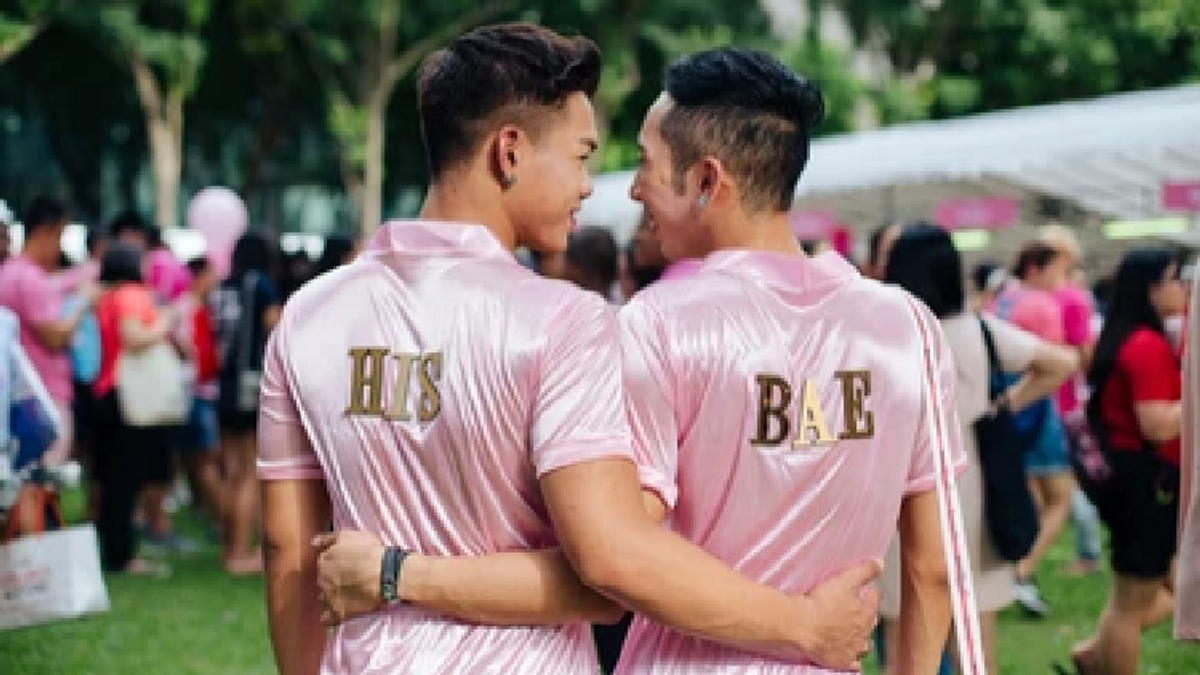(CNN) -- Singapore's Prime Minister Lee Hsien Loong on Sunday said the country will repeal the colonial-era Section 377A of Singapore's Penal Code, thereby decriminalizing gay sex in Singapore, but added that same-sex marriage will continue to be illegal in the city-state.
"Sex between consenting men should not be criminalized. There is no justification to prosecute people for it, nor to make it a crime," he said at his annual policy address, the National Day Rally, carried live on television.
"I believe (repeal) is the right thing to do, and something that most Singaporeans will now accept. This will bring the law into line with current social mores, and I hope, provide some relief to gay Singaporeans," said the Prime Minister.
"Like every human society, we also have gay people in our midst. They are our fellow Singaporeans. They are our colleagues, our friends, our family members. They too want to live their own lives, participate in our community, and contribute fully to Singapore," he added.
However, the government will not change the country's legal definition of marriage, as being between a man and a woman, Lee said, implying that laws will be strengthened to protect that definition.
"We will protect the definition of marriage, as contained in the Interpretation Act and the Women's Charter, from being challenged constitutionally in the courts. We have to amend the constitution to protect it, and we will do so," he said, according to his official Twitter account.
A community statement by more than 20 LGBTQ groups in Singapore called the planned decriminalization of sex between men as "long overdue" and "a significant milestone and a powerful statement that state-sanctioned discrimination has no place in Singapore."
As to the definition of marriage, the statement stressed that "any move by the government to introduce further legislation or constitutional amendments that signal LGBTQ+ people as unequal citizens is disappointing. We urge the government not to heed recent calls from religious conservatives to enshrine the definition of marriage into the constitution."
Colonial-era law
Section 377A of Singapore's Penal Code was promulgated in 1938 by the British colonial government when Singapore was a British colony. It punishes gay sex -- even if it is consensual, between adults, and takes place privately -- for up to two years of imprisonment.
Similar laws were imposed in territories ruled by the British empire, such as India, and some of these countries have since revoked such laws over the years.
LGBTQ activists in Singapore have long called for the law to be scrapped.
In 2007, the Singaporean government repealed parts of Section 377 of its criminal law after a comprehensive review but retained 377A.
In February 2022, Singapore's Court of Appeal ruled that the section would remain in the law, but it cannot be enforced to prosecute men for having gay sex.
The trilingual Prime Minister made his address in Malay, Mandarin and English, a speech reflecting the diverse demographics in Singapore.
During his speech, Lee addressed long-standing concerns voiced by conservative religious groups and leaders on other related issues like same-sex marriage, which is not currently legal in the country.
Lee said: "We need to find the right way to reconcile and accommodate both the traditional mores of our society, and the aspiration of gay Singaporeans to be respected and accepted.
"Most Singaporeans would like to keep our society like this. This is the Government's position too," he said. "We have upheld and reinforced the importance of families through many national policies, and we will continue to do so," he said.
While societal attitudes in Singapore are still largely conservative, activists say it is changing, and the government was "considering the best way forward" on the issues.
Some corners of Asia have seen recent progress on the issue of same-sex marriage. In 2019, the self-ruled island of Taiwan became the first place in Asia to legalize same-sex marriage. In June, Thailand edged closer to becoming the first place in Southeast Asia to legalize same-sex unions when lawmakers passed four different bills aiming to provide greater rights to gay couples, such as the ability to adopt children and manage assets jointly.
The-CNN-Wire
(tm) & (c) 2022 Cable News Network, Inc., a Warner Bros. Discovery Company. All rights reserved.
Find the latest news from The Advocate here.













































































Here's our dream all-queer cast for 'The White Lotus' season 4